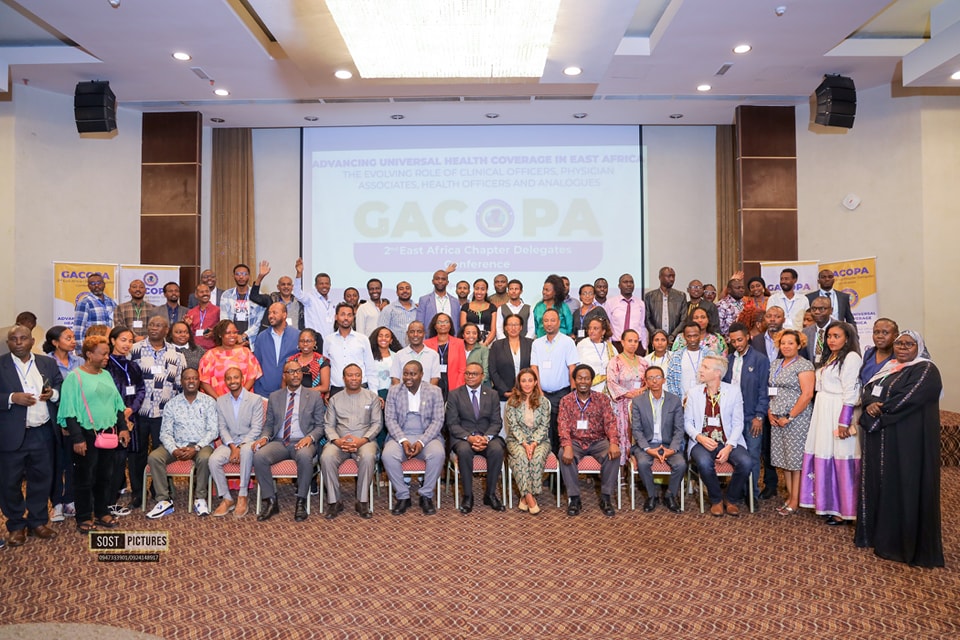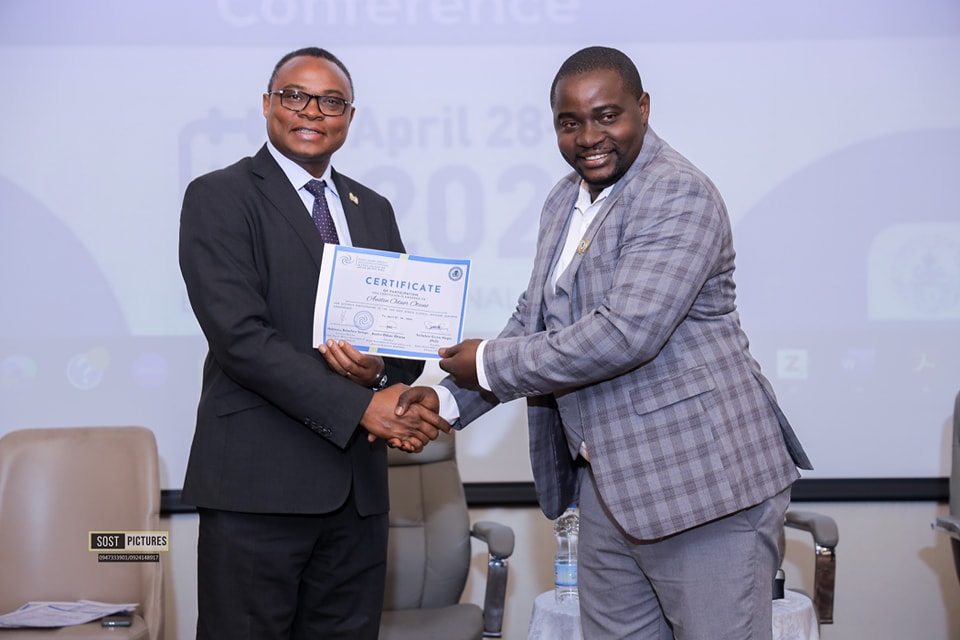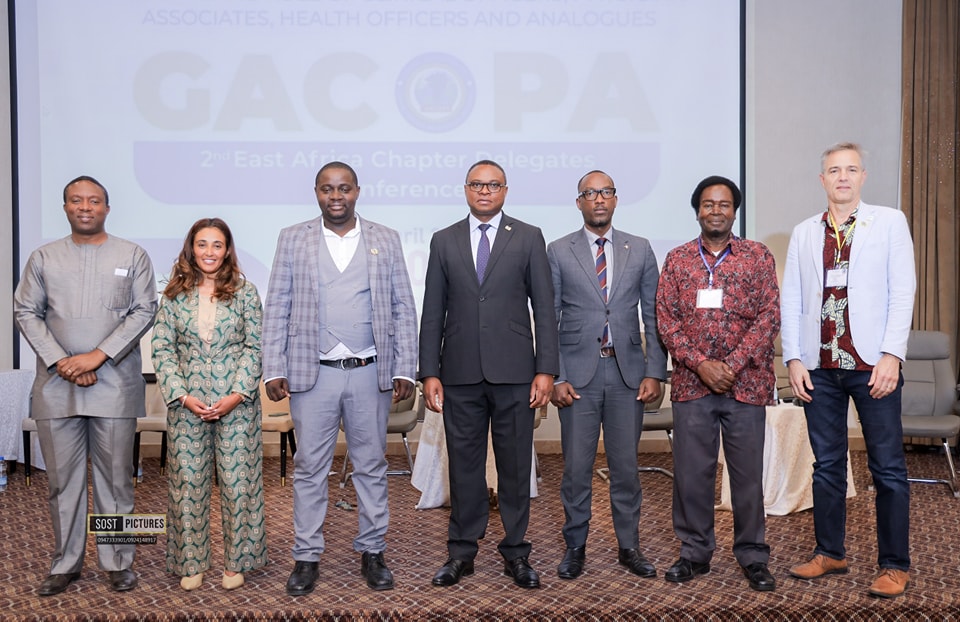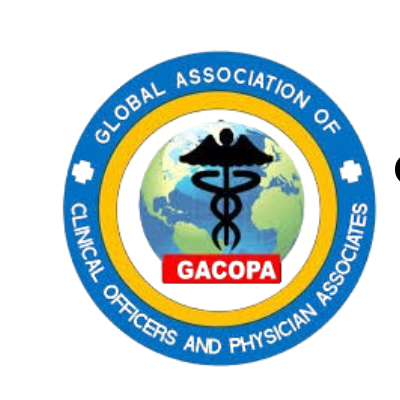
The 2nd East Africa Clinical Officers Conference, held in Addis Ababa, Ethiopia, was a significant event that brought together over 250 delegates, including 50 international participants, to discuss the evolving role of clinical officers and physician associates in healthcare. The presence of H.E. George M. Orina, Kenya’s Ambassador to Ethiopia, underscored the regional importance of this professional group.
The President of GACOPA Mr. Austin Oduor Otieno was present to show his support for the event.

1. Significance of the Conference:
- Regional Collaboration: Organized by GACOPA East Africa and the Health Officers Association of Ethiopia, the conference served as a crucial platform for professionals from across the East African region and beyond to share knowledge, best practices, and collaborate on strategies to strengthen healthcare systems.
- Addressing Healthcare Gaps: In a region often grappling with complex health challenges, limited resources, and a growing disease burden, clinical officers and physician associates play an indispensable role. They are often the frontline providers, especially in underserved rural and urban areas where physicians may be scarce.
- Advancing Universal Health Coverage (UHC): The conference likely focused on how clinical officers and physician associates contribute to achieving UHC, which aims to ensure that all people have access to the health services they need without suffering financial hardship. This would involve discussions on expanding access to care, improving quality, and integrating services.
2. The Evolving Role of Clinical Officers and Physician Associates:
- Historical Context: The role of clinical officers in East Africa has a long history, often tracing back to colonial-era initiatives to address healthcare needs with limited medical doctors. Over time, their training and scope of practice have evolved significantly.
- Expanded Scope of Practice: The modern clinical officer and physician associate are highly trained medical professionals. Their responsibilities have expanded beyond merely “assisting” physicians to include diagnosing illnesses, developing treatment plans, prescribing medications, performing procedures, and managing chronic diseases. In many settings, they work with a degree of autonomy, while still collaborating with physicians.
- Addressing Workforce Shortages: As physician shortages persist globally, and particularly in many parts of Africa, clinical officers and physician associates are increasingly vital in filling these gaps. They are instrumental in providing primary care, specialty care, and contributing to public health initiatives.
- Specialization and Advanced Training: Many clinical officers pursue higher diplomas and master’s degrees in various medical specialties, allowing them to provide specialized care in areas like pediatrics, orthopedics, and psychiatry. This further highlights their evolving professional trajectory.
- Integration of Technology: The conference likely explored how clinical officers and physician associates are leveraging digital technologies like telemedicine and health informatics to enhance care delivery, improve efficiency, and expand access, particularly in remote areas.
- Leadership and Advocacy: The conference would have provided a forum for these professionals to discuss their leadership roles in disease prevention, combating antimicrobial resistance, managing non-communicable diseases, and advocating for policies that support their crucial contributions to healthcare.
- Professional Recognition and Standardization: Organizations like GACOPA are actively working to standardize professional practice, enhance healthcare delivery, and promote global recognition and policy reforms for clinical practitioners to achieve UHC. The discussions at the conference would have contributed to these efforts.

3. Key Themes and Discussions (Inferred):
Based on the focus of the conference and the general trends in healthcare, the discussions included:
- Training and Education: Harmonizing training standards across East Africa, continuous professional development (CPD), and postgraduate training opportunities.
- Policy and Regulation: Advocating for supportive policies, legal frameworks, and regulatory environments that optimize the utilization of clinical officers and physician associates.
- Collaboration and Team-Based Care: Emphasizing the importance of interprofessional collaboration and how these professionals integrate effectively within the broader healthcare team.
- Innovations in Healthcare Delivery: Exploring new models of care delivery, particularly in primary healthcare and community health.
- Impact on Public Health: Highlighting the role of clinical officers and physician associates in public health programs, disease prevention, and health promotion.
- Challenges and Opportunities: Addressing challenges such as resource limitations, brain drain, and ensuring equitable distribution of healthcare professionals, while identifying opportunities for growth and impact.
In conclusion, the 2nd East Africa Clinical Officers Conference was a vital gathering that underscored the growing importance and evolving responsibilities of clinical officers and physician associates in shaping the future of healthcare in East Africa and beyond, particularly in the pursuit of Universal Health Coverage.
